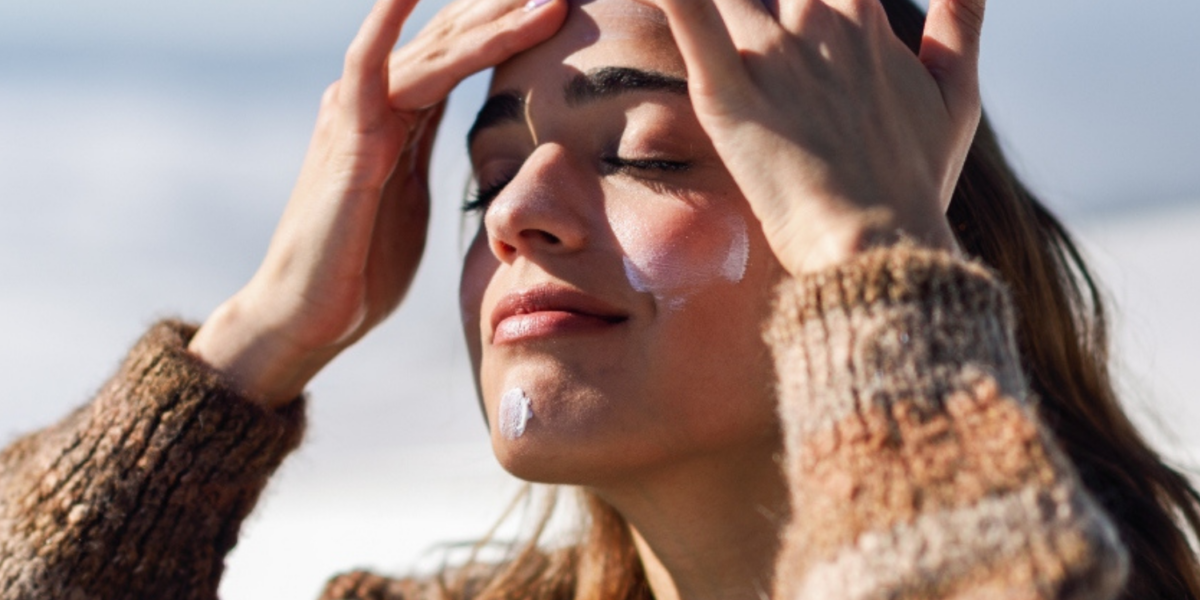When you think of sunscreen, chances are your mind immediately drifts to sandy beaches, bright sunny skies, and hot summer days. But the importance of sunscreen goes far beyond summer and vacation vibes. Protecting your skin from the sun’s harmful rays is a year-round necessity, even during the cold, gloomy days of winter. In this blog, we’ll dive deep into the science behind SPF (Sun Protection Factor) and uncover why sunscreen is essential no matter the season.
What Is SPF and How Does It Work?
SPF, or Sun Protection Factor, measures how effectively a sunscreen protects your skin from UVB rays—the type of ultraviolet radiation responsible for sunburn and skin damage. Here’s a quick breakdown of how it works:
- SPF Rating: An SPF rating of 30, for example, means that your skin is protected 30 times longer than it would be without sunscreen.
- UVB Protection: SPF specifically shields your skin from UVB rays, which penetrate the outer layers of the skin and cause immediate damage like redness and burns.
- Broad-Spectrum Protection: Many modern sunscreens also offer UVA protection, defending against rays that penetrate deeper into the skin and accelerate aging and DNA damage.
Why Sunscreen Is Crucial in Winter
Winter may bring cooler temperatures and less direct sunlight, but it doesn’t mean you’re free from the risks of UV radiation. Here are several reasons why sunscreen remains a must in colder months:
1. UV Rays Are Present Year-Round
Even on overcast days, up to 80% of UV rays can penetrate clouds and reach your skin. Winter sunlight might feel less intense, but UVA rays, which cause long-term damage, are just as potent as during the summer.
2. Snow Reflects UV Rays
If you’re hitting the slopes or enjoying a snowy landscape, remember this: snow reflects up to 80% of UV rays. This reflection increases your exposure and puts you at a higher risk of skin damage and even sunburn.
3. High Altitude Increases Exposure
For winter sports enthusiasts, altitude matters. The higher you go, the thinner the atmosphere becomes, meaning there is less natural filtration of UV rays. Each 1,000-meter increase in altitude raises UV exposure by about 10%.
4. Cumulative Damage Adds Up
Skin damage from UV rays is cumulative. Skipping sunscreen in winter doesn’t just impact your immediate appearance but contributes to long-term issues like:
- Premature Aging: Fine lines, wrinkles, and pigmentation are often the result of chronic sun exposure.
- Skin Cancer: Melanoma and other forms of skin cancer are linked to prolonged UV exposure.
- Weakened Skin Barrier: UV rays weaken your skin’s natural defense mechanisms, making it more susceptible to environmental damage.
The Role of UVA and UVB Rays
Understanding the difference between UVA and UVB rays highlights why consistent protection is essential.
UVA Rays
- Long-wave radiation that penetrates deep into the skin.
- Responsible for aging, pigmentation, and DNA damage.
- Present during all daylight hours and can penetrate glass windows.
UVB Rays
- Short-wave radiation that affects the outer layers of skin.
- Causes sunburn and plays a key role in the development of skin cancer.
- Stronger during summer but still present in winter.
Broad-spectrum sunscreens provide protection against both types, ensuring your skin is safeguarded year-round.
Choosing the Right Sunscreen for Winter
Your winter sunscreen needs might differ slightly from what you use in summer. Here’s what to look for:
- Broad-Spectrum Protection: Ensure your sunscreen shields against both UVA and UVB rays.
- SPF 30 or Higher: Dermatologists recommend a minimum of SPF 30 for adequate protection.
- Moisturizing Formula: Winter air can dry out your skin, so choose a sunscreen with hydrating ingredients like hyaluronic acid or glycerin.
- Non-Greasy Finish: Opt for lightweight, non-comedogenic options to avoid clogging pores.
How to Incorporate Sunscreen Into Your Winter Routine
Integrating sunscreen into your daily skincare routine doesn’t have to be complicated. Here are a few tips:
- Apply Every Morning: Even on cloudy days, make sunscreen application a non-negotiable part of your morning routine.
- Reapply Regularly: If you’re outdoors for extended periods, reapply every two hours or immediately after sweating or wiping your face.
- Don’t Forget Key Areas: Pay attention to often-overlooked areas like your ears, neck, and hands.
- Use Makeup with SPF: Layering SPF-infused makeup over your sunscreen can provide an additional barrier.
Common Myths About Winter Sunscreen
Let’s debunk some common misconceptions:
“You Don’t Need Sunscreen Indoors”
UVA rays can penetrate glass windows, meaning you’re still exposed indoors, especially if you’re near windows or spending time in a sunlit space.
“Dark Skin Doesn’t Need Sunscreen”
While melanin provides some natural protection, it doesn’t shield against all UV damage. People with darker skin tones are still susceptible to skin cancer and photoaging.
“Sunscreen Is Only for Sunny Days”
UV rays penetrate through clouds, so overcast weather isn’t a free pass to skip sunscreen.
Benefits of Consistent Sunscreen Use
Wearing sunscreen daily has numerous benefits:
- Prevents Skin Cancer: Reduces the risk of melanoma and other skin cancers.
- Slows Aging: Minimizes wrinkles, fine lines, and age spots.
- Protects Skin Tone: Reduces the appearance of discoloration and pigmentation.
- Improves Skin Health: Maintains a strong, resilient skin barrier.
The Science of SPF Innovation
Modern sunscreens have come a long way, incorporating advanced technologies to enhance protection and user experience:
- Invisible Formulas: Lightweight, sheer sunscreens that blend seamlessly on all skin tones.
- Antioxidant Infusion: Ingredients like vitamin C and E combat free radicals caused by UV exposure.
- Water-Resistant Options: Essential for outdoor activities and sports.
- Mineral Sunscreens: Contain zinc oxide or titanium dioxide for gentle, natural protection.
Why Choose Professional Guidance?
If you’re unsure about the best sunscreen for your skin type or how to incorporate it into your routine, consulting with experts is invaluable. Institutions like Benci International Academy provide comprehensive skincare training and expertise. They emphasize the science behind skincare and sun protection, ensuring you understand and prioritize your skin’s health.
Final Thoughts
Sunscreen is more than just a summer staple; it’s a year-round necessity that protects your skin from both immediate and long-term damage. By understanding the science behind SPF and adopting consistent habits, you can maintain healthy, radiant skin regardless of the season.
Whether you’re navigating a snowy winter or basking in summer sunshine, sunscreen is your ultimate ally. For those passionate about skincare, institutions like Benci International Academy offer a wealth of knowledge to deepen your understanding and enhance your approach to skin health.



